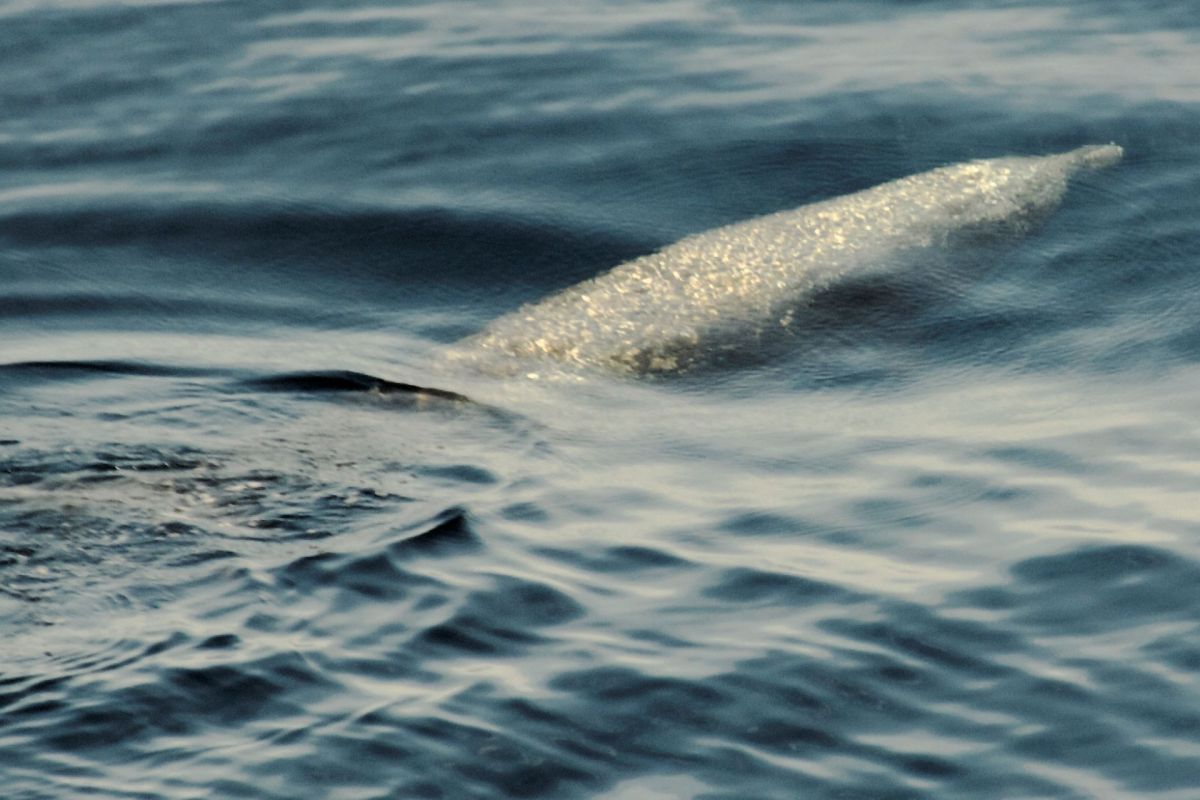In a disheartening reminder of the ongoing crisis of ocean pollution, a young Gervais' beaked whale was recently found dead on Emerald Isle, North Carolina, with a balloon in its stomach.
What's happening?
On Oct. 30, a disturbing discovery was made on Emerald Isle's shores, as reported by UNC Wilmington newspaper The Seahawk — a deceased Gervais' beaked whale with a Mylar balloon lodged in its stomach. The autopsy on the female calf, conducted by a team from various institutions, revealed the cause of death as an obstruction due to the balloon.
This incident is not isolated. Dr. Tiffany Keenan of UNCW's Marine Mammal Stranding Program notes that while such cases are rare, they are not unheard of. The beaked whale is particularly vulnerable due to its feeding mechanism that doesn't allow regurgitation, making it impossible for the whale to expel the ingested balloon.
"People don't even know about [beaked whales], but somehow, our trash reaches them," Keenan stated. "That's the crazy part."
Why is this concerning?
This tragic event underscores a critical and growing problem. Gervais' beaked whales, typically found 100–300 miles off the coast, are ingesting human trash, mistaking it for food.
The prevalence of plastic and other waste in our oceans is causing immense harm to marine ecosystems. Marine animals like sea turtles and dolphins are also victims of this pollution, often ingesting or becoming entangled in waste.
The problem of plastic pollution extends beyond the oceans, affecting wildlife in diverse habitats. Recent autopsies of dead camels in the United Arab Emirates revealed large clumps of ingested plastic, causing intestinal blockages and deaths. In their sparse desert environment, camels that mistake plastic for food suffer slow, painful deaths due to plastic ingestion.
What's being done about this?
In response to this growing crisis, there are concerted efforts to tackle ocean pollution. Initiatives range from local beach cleanups to international agreements to reduce ocean plastic waste. Education and awareness programs are crucial in this fight, helping people understand the impact of their actions and how to make more sustainable choices.
Reducing your reliance on plastics involves recycling existing materials and avoiding their use. Understanding recycling symbols and local recycling policies is crucial for effective household recycling.
Try to find specialized recycling centers for plastics that aren't accepted curbside. Repurposing plastic bottles for gardening or watering cans is a practical home solution. Switching to reusable items like metal razors and shampoo bars can significantly reduce your plastic footprint.
This tragic incident serves as a poignant call to action for all of us to play our part in preserving our oceans and the incredible life they sustain.
Join our free newsletter for cool news and cool tips that make it easy to help yourself while helping the planet.









